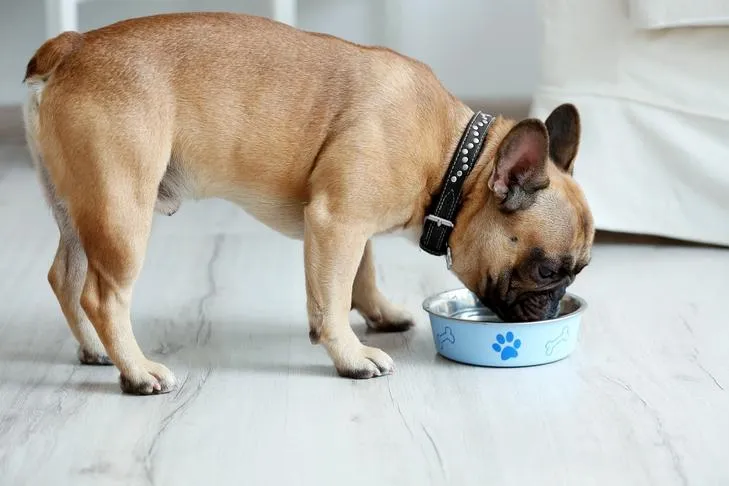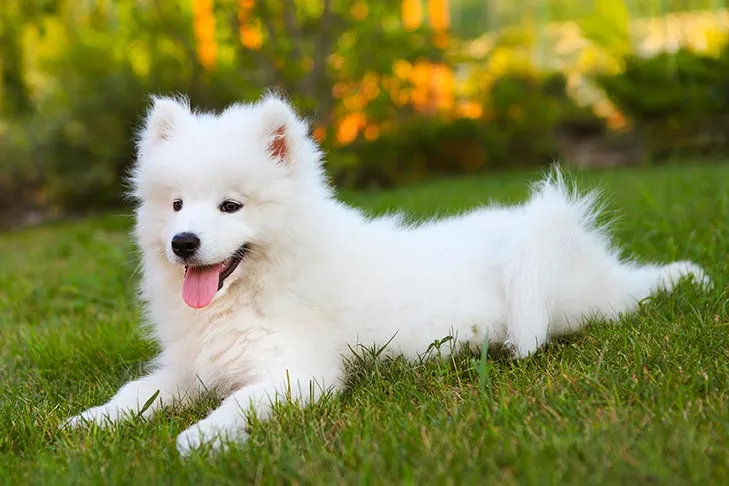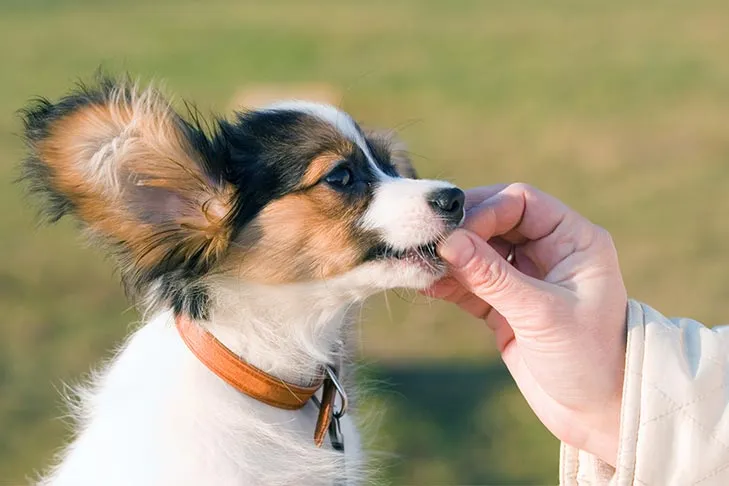As a loving pet parent, you undoubtedly want the best for your furry friend, and that includes their diet. While commercial dog food provides balanced nutrition, it’s natural to wonder which human foods are safe to share as occasional treats. Understanding what human foods your canine companion can safely consume is crucial for their well-being, allowing you to offer variety without risking their health. However, it’s just as important to know what foods are off-limits due to their toxic nature. This guide from Dog Care Story will explore a comprehensive list of human foods that are generally safe and even beneficial for dogs, alongside important caveats and serving suggestions to ensure your dog enjoys these snacks responsibly. From common kitchen staples to surprising healthy options, we’ll help you navigate the world of shared human-dog snacks.
Safe Human Foods for Your Canine Companion
Many everyday human foods can offer nutritional benefits and make excellent treats for your dog when prepared and served correctly. Always introduce new foods slowly and in moderation, and consult your veterinarian if you have any concerns about your dog’s diet or specific health conditions.
Bread
Small amounts of plain bread are generally harmless for your dog, provided it contains no spices, particularly no raisins. While bread offers no significant health benefits, it won’t cause harm. However, it provides no nutritional value and can contribute to excess carbohydrates and calories, similar to humans. Homemade breads might be a slightly better option than store-bought varieties, as commercial breads often contain unnecessary preservatives. Nonetheless, it’s often best to limit or avoid it altogether to prevent unnecessary calorie intake.
Cashews
Cashews are acceptable for dogs, but they should only be given in small quantities. These nuts contain beneficial nutrients such as calcium, magnesium, antioxidants, and proteins. However, despite having less fat than some other nuts, consuming too many cashews can lead to weight gain in dogs. A few unsalted cashews can serve as a nice treat, but always ensure they are unsalted to avoid excessive sodium intake.
Cheese
Dogs can enjoy cheese in small to moderate amounts. Provided your dog doesn’t suffer from lactose intolerance – a condition that is possible though uncommon in canines – cheese can be a highly palatable treat. Many varieties of cheese are high in fat, so opting for lower-fat choices like cottage cheese or mozzarella is advisable. Additionally, many dogs relish specialized dog chews, such as Himalayan dog chews, which are made from dried cheese.
 An All-American Dog resting its head on a kitchen table, looking intently at a piece of cheese.
An All-American Dog resting its head on a kitchen table, looking intently at a piece of cheese.
Coconut
This distinctive fruit contains lauric acid, an ingredient that can help fight off bacteria and viruses. Coconut can also be beneficial for improving bad breath and alleviating certain skin conditions, including hot spots, flea allergies, and general itchy skin. Both coconut milk and coconut oil are safe for dogs. However, always ensure to keep the fibrous outer shell away from your dog, as it can pose a choking hazard or become lodged in their throat.
Corn
Corn is a staple ingredient found in most dog foods. When sharing corn with your dog, it is crucial to ensure it is removed from the cob, as the cob itself can be difficult for dogs to digest and may lead to an intestinal blockage. If you’re looking for a fun alternative, a squeaky corn-shaped toy can provide entertainment without any dietary risks.
Eggs
Eggs are perfectly safe for dogs to eat, provided they are fully cooked. Cooked eggs are an excellent source of protein and can be particularly helpful for soothing an upset stomach. However, feeding raw egg whites can potentially lead to a biotin deficiency, so it’s essential to cook eggs thoroughly before offering them to your pet. If your dog occasionally experiences digestive issues, you might also be curious about what can my dog eat for an upset stomach to aid their recovery.
Fish
Fish provides good fats and amino acids, offering a significant health boost for your dog. Salmon and sardines are especially beneficial: salmon is rich in vitamins and protein, while sardines contain soft, digestible bones that provide extra calcium. With the exception of sardines, it is imperative to carefully remove all tiny bones from other fish, as they can be a choking hazard.
Never feed your dog uncooked or undercooked fish; it must always be fully cooked and cooled. Furthermore, limit your dog’s fish intake to no more than twice a week to maintain a balanced diet.
Ham
Ham is generally acceptable for dogs to eat, but it is certainly not the healthiest option. It is notably high in both sodium and fat, so while sharing a very small piece occasionally is fine, it should not become a regular part of their diet. Due to its high content of salt and fat, excessive consumption can lead to health issues.
 A French Bulldog happily eating from its bowl at home.
A French Bulldog happily eating from its bowl at home.
Honey
Honey is packed with numerous nutrients, including vitamin A, potassium, calcium, magnesium, copper, and a wealth of antioxidants. Feeding small amounts of honey to dogs can potentially assist with allergies by gradually introducing tiny amounts of local pollen to their systems, thereby building immunity to prevalent allergens in your area. In addition to its dietary benefits, honey can also be applied topically as a natural treatment for minor burns and superficial cuts on the skin.
Milk
Dogs can drink milk, but caution is advised. Some dogs are lactose-intolerant and may not digest milk well, leading to digestive upset. While a small amount of milk is generally fine for most dogs, owners should be vigilant for symptoms of lactose intolerance, such as diarrhea or gas. For many dogs, sticking to water is the safest and healthiest option.
Peanut Butter
Peanut butter can be an excellent source of protein for dogs. It contains heart-healthy fats, as well as essential vitamins B and E, and niacin. The healthiest choice is raw, unsalted peanut butter. It is critically important to read the label carefully to ensure the peanut butter does not contain xylitol, a common sugar substitute that is highly toxic and potentially fatal to dogs. Always check for this ingredient before offering peanut butter to your pet.
While many human foods offer benefits, it’s also crucial to understand which ones pose risks. For instance, knowing what vegetables are not safe for dogs can prevent adverse reactions.
Peanuts
Unlike almonds, peanuts are safe for dogs to eat. They are rich in beneficial fats and proteins that can contribute positively to your dog’s diet. However, it is important to give peanuts in moderation, as an excessive intake of fat can potentially lead to pancreas issues. Additionally, always avoid salted peanuts, as too much salt is difficult for dogs to process and can be harmful.
Popcorn
Unsalted, unbuttered, and air-popped popcorn is acceptable for your dog in moderation. It contains riboflavin and thiamine, both of which support eye health and digestion, along with small amounts of iron and protein. Be sure that all kernels are fully popped before giving them to your dog, as unpopped kernels can pose a significant choking hazard.
Pork
Pork is a highly digestible protein source, rich in amino acids, although it typically contains more calories per pound compared to other meats. It may also be less likely to trigger an allergic reaction in some pets, making it a suitable protein alternative for dogs with sensitivities to other meat sources.
 A Samoyed puppy laying comfortably in the grass outdoors, enjoying the natural environment.
A Samoyed puppy laying comfortably in the grass outdoors, enjoying the natural environment.
Quinoa
Quinoa is increasingly found as an ingredient in many high-quality dry dog foods. Its robust nutritional profile makes it a healthy and beneficial alternative to more common starches such as corn, wheat, and soy, which are often used in the production of kibble. This ancient grain offers a complete protein source and a wealth of essential nutrients for dogs.
Salmon
As previously mentioned, fully cooked salmon is an outstanding source of protein, healthy fats, and amino acids. It is known to support joint and brain health and can significantly boost a dog’s immune system. However, it is crucial to never feed raw or undercooked salmon, as it can harbor parasites that can cause severe illness in dogs, leading to symptoms like vomiting, diarrhea, and dehydration, and in extreme cases, even be fatal. Ensuring salmon is cooked all the way through eliminates these dangerous parasites.
Similarly, when considering fresh produce for your dog’s diet, it’s wise to be informed about what fruits can dog not have to ensure their safety.
Shrimp
A few shrimp every now and then can be a fine treat for your dog, but only if they are fully cooked and completely shelled, including the removal of the tail, head, and legs. Shrimp are rich in antioxidants, vitamin B-12, and phosphorus, while also being low in fat, calories, and carbohydrates, making them a healthy, occasional snack.
Tuna
Dogs can eat tuna, but only in very small amounts and in moderation. Cooked, fresh tuna is an excellent source of omega-3 fatty acids, which are beneficial for promoting heart and eye health. When it comes to canned tuna, it contains small amounts of mercury and sodium, both of which should be avoided in excess. A little bit of canned tuna prepared only in water (not oil) and without any added spices can be given occasionally.
Turkey
Turkey is generally safe for dogs to eat, but it’s essential to remove any excess fat and skin from the meat before serving. Additionally, always check thoroughly for bones, as poultry bones can splinter during digestion, potentially causing blockages or even internal tears in the intestines. Any turkey prepared with excessive salt, seasonings, onions, or garlic should never be fed to dogs, as these can be toxic.
When it comes to protein sources, while certain meats are beneficial, pet owners must be vigilant about what meat should never be fed to dogs to safeguard their health.
Wheat or Grains
Dogs do not necessarily need to be on a grain-free diet; in fact, grains are perfectly acceptable for them to consume. Grains such as wheat and corn are valuable sources of protein, essential fatty acids, and fiber, contributing significantly to a dog’s overall health. However, if your dog has known allergies, it might be best to avoid certain grains, but this truly depends on the individual dog’s sensitivities. Always consult your veterinarian for personalized dietary recommendations.
Yogurt
Plain yogurt is a perfectly acceptable snack for dogs. However, some dogs may experience difficulty digesting dairy products due to lactose intolerance. If your dog can digest it without issue, the active bacteria found in yogurt can help bolster their digestive system with beneficial probiotics. Plain yogurt is always the best choice; avoid any yogurts with added sugars, artificial sweeteners (especially xylitol), or fruit flavorings, as these can be harmful.
 A Papillon puppy gently and carefully taking a treat from a human hand.
A Papillon puppy gently and carefully taking a treat from a human hand.
Important Considerations When Feeding Human Foods to Dogs
While many human foods can be safely shared with your dog, thoughtful consideration is key to responsible pet ownership. Always remember that these human foods should only be given as occasional treats, not as a primary component of their diet, which should consist of high-quality, balanced dog food. Monitor your dog for any signs of digestive upset after introducing new foods, and always serve items in moderation to prevent weight gain or nutritional imbalances. If you are ever unsure about a particular food or observe any adverse reactions in your dog, consult your veterinarian immediately.
Foods Dogs Should Never Eat
It’s absolutely critical for every pet owner to be aware of which human foods are dangerous and potentially toxic to dogs. Some common household items can cause severe illness, organ damage, or even be fatal if ingested by your dog. Always keep these forbidden foods out of reach. Understanding what are all the foods dogs cant eat is paramount for responsible pet ownership. If you suspect your dog has consumed a toxic food, contact your veterinarian or an emergency animal hospital immediately.
Conclusion
Providing your dog with a varied diet that occasionally includes safe human foods can be a wonderful way to offer them new flavors and some additional nutrients. From lean proteins like cooked turkey and fish to nutrient-rich vegetables and fruits, there are many options that can contribute positively to their health when given responsibly. Always remember that moderation is key, and preparation matters – ensure foods are plain, cooked, and free from any toxic ingredients or seasonings.
Always prioritize your dog’s health and well-being by educating yourself on safe and unsafe foods. For more detailed information on canine nutrition and care, explore other articles on Dog Care Story. When in doubt, a quick call to your veterinarian can provide peace of mind and ensure your furry friend stays happy and healthy for years to come.
